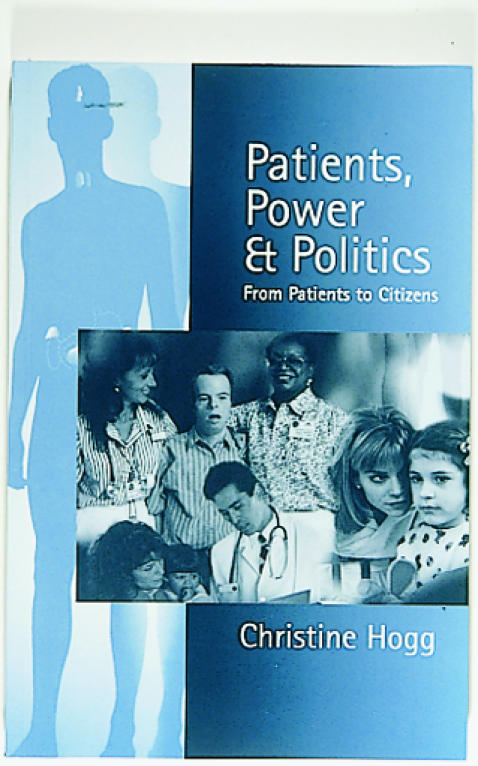Christine Hogg
Sage, £16.99, pp 219 
ISBN 0 7619 5878 9
———————
Rating: ★★★
For most of the time for most people, health services are not important, and yet, as Christine Hogg reminds us, “Everyone of us is at some time or another a patient.” This fate is as inevitable as death and taxes, and, like their attitude to these other eternal verities, people often feel powerless when confronted by it.
In the 20 years that I have been involved with campaigning about healthcare issues I have continually had to struggle with the sheer complexity of the subject. Just understanding the plethora of trusts and authorities within the NHS, and the way they work together, can take years to grasp. Users wanting to get involved face a daunting task in trying to understand how the NHS works and who might be able to make what changes.
Similarly, I have met many healthcare professionals who, while confident within their own small domain, have little inkling about how the rest of the service works. They may also want to involve users, having recognised that this a good way of improving services, but then discover that the issues are not as they expected. What seems important to a doctor or a manager may not be so for the user. Most research on cancer is about the effects of chemotherapy on cancer cells, but women with breast cancer equally want research on the treatments’ effects on quality of life.
Anything that helps us to understand the complexities of healthcare provision and what issues are important to users is therefore helpful. I welcome Christine Hogg’s excellent summary of the issues raised by users about healthcare services. It clearly informs readers of the debates that need to take place and of the issues that healthcare practitioners should address in order to better serve their users.
However, one question kept cropping up in my mind—who will read this book and what will they do afterwards? According to the blurb on the back, it will be “invaluable reading for students and academics in health care, health ethics, health policy, planners and practitioners in health and social care, and voluntary organisations and user groups.” That’s an awful lot of people, but will they all find it useful? Only if they are prepared to go beyond what is presented and recognise that, having the issues so clearly delineated, it is time for them to start discussing these issues with users.
So read the book to gain a better understanding of some of the issues that users feel strongly about, but do not think that this is an end in itself. It is merely a starting point for discussions with users and user groups.


